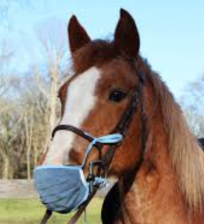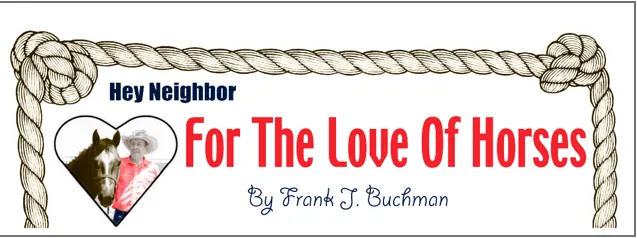Coronavirus in horses is different than in humans.
“The coronavirus which is causing most serious respiratory disease in humans does not infect horses,” said Dr. Lynn M. Martin.
“Coronavirus” is the overarching name for a family of viruses, many which can cause disease in domestic animals including dogs, cats, and horses.
“These coronaviruses are not known to be contagious to people,” the veterinarian said.
“Still equine coronavirus, ECoV, infections are a viral gastrointestinal disease in horses,” Martin pointed out. “It is highly contagious in working environments, especially breeding and boarding facilities.”
Most common clinical signs of equine coronavirus infections include a decreased appetite, fever and tiredness. Other signs are stomachache, soft or watery fecal movement, and wobbly gait.
“ECoV is spread when feces from an infected horse is ingested by another horse defined as fecal-oral transmission,” Martin explained.
The virus can also be transmitted when horses make oral contact with surfaces or objects that are contaminated with infected feces.
“Horse coronavirus infections can be diagnosed by submitting feces to identify the implicated viral nucleic acids,” Martin said.
Treatments are highly dependent upon what is discovered during the veterinary examination and initial diagnostic tests.
“Often, supportive care in the way of anti-inflammatory drugs is prescribed,” Martin said.
“Occasionally, severely affected patients require hospitalization with additional supportive care such as intravenous fluid therapy and plasma transfusions.” Martin explained.
“Equine coronavirus infections result in high morbidity and low mortality,” Martin detailed. Thus, many horses may be affected but few will die.
“Horses generally recover from the infection within three to seven days, but some can develop more serious complications,” Martin warned.
An infected horse should be isolated for no less than 21 days. It’s important to keep barn supplies separated between healthy and infected horses.
“All surfaces should have feces and bedding removed prior to disinfection,” Martin advised.
“Coronavirus infection in horses is very different than COVID-19 in humans,” the veterinarian reemphasized. “At this time, there is no evidence that domestic animals, including horses, dogs and cats, can spread COVID-19 to humans.”
For this reason, diagnostic testing of animals for COVID-19 is not recommended.
However, routine hygiene and health practices should be employed including:
• Washing hands after handling animals, feed, waste, or supplies.
• Maintaining clean housing conditions, including routine stall or paddock cleaning with appropriate waste disposal.
• Having a veterinarian perform an annual physical examination, administer core vaccines, and deworm based on fecal egg count results.
“Proactively protecting your horse’s immune system will ensure peak health to better fight infections and perform,” Martin concluded.
CUTLINES
No need to put a mask on a horse to prevent the contagious coronavirus strain which is different than COVD-19 causing most serious respiratory disease in humans.
Dr. Lynn M. Martin





